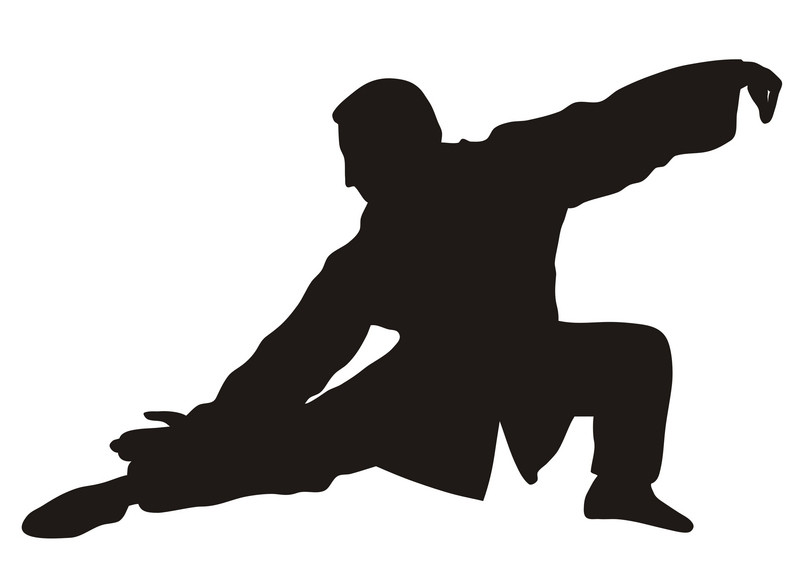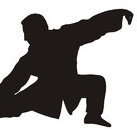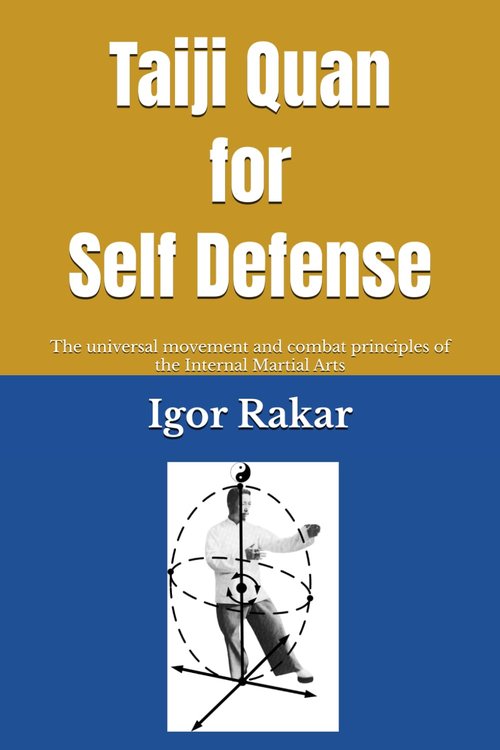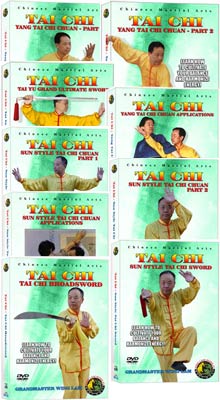-
Content count
72 -
Joined
-
Last visited
Posts posted by Samoobramba
-
-
Here are my two new books. :-)
Martial Arts For Street Survival
-
Anybody interested in Taijiquan freestyle partner practice can join here:
https://www.google.com/maps/d/edit?mid=1kUXQGeauxiZdP_sZTNgWCBuxH6y2vcc -
Anyone interested in open practice and friendly exhange is welcome to join!
https://www.google.com/maps/d/u/0/edit?mid=1kUXQGeauxiZdP_sZTNgWCBuxH6y2vcc -
If anybody knows realy Cheng Man Ching Taijiquan evolution would knot that he developed his Taijiquan to be close as possible to the Taijiquan classics. Chen style is not the pure Taijiquan but is mixed with Pao Chui (Shaolin).
-
The trainign should start in stillness. Then you have to add the duality (Yin and Yang).
Next stage are the movements. A good example how to progress are the 13 energies (8 hands energies and 5 steps).
When you master these solo practice you have to began practice with the partner. You have to follow all the Taijiquan principles. Probably it seems too easy so many people can't get it.
At the end, when all skills are developed the progression is made by adding the sparring and the conditioning.
-
 1
1
-
 1
1
-
-
Agree.
-
Anyone knows Sam Kakina? From who learned? Maybe from Tung Hu Ling?
As I understand people called him method "Outlaw Tai Chi". However it was known as Combat Tai Chi.
-
The Yin and Yang principle is only 1 principle of Taiji Quan. There are many principles. In past they tried to link these principles to the Daoist philosophy, however this is not useful. Many things can be linked to the 5 elements, 8 triagrams and so on, but in practice is another story. Many people tried to make Taiji Quan a philosophy and are making excuses. BS. Taiji Quan is a martial art and if it don't work it is not a real Taiji Quan.
-
 1
1
-
-
1 hour ago, Thrice Daily said:I disagree, and think a bit of time with Wing Chun, even just first form and you will see a lot more in your Tai Chi, in terms of its martial possibilities a lot of it will be pretty clear.
I really enjoy shifting focus to Wing Chun at times in Tai Chi and other training too.
Its possible to do movements and totally transform the training by dropping into a WC stance and stepping instead, keep elbows right in, stick more closely to centreline without over extending etc and using hua ma for turning . Especially applying it to my current MA flow drills it becomes dramatically different.
Wing Chun is so easy compared to Tai Chi to get some good practical grounding fast, and more likely to get it right and be effective IMO.
I’d love to read more about Taiji Quan for self defence on this thread.
It would be cool to read more…The real Tai Chi is not the populat Tai Chi today! The real Tai Chi use all the principles from the Tai Chi classics without exceptions.
I trained with many Wing Chun people. They use to much their structure and make them slow and limit their use of sensitivity. Soon they realize that must become mer soft and improvise more and forget their memorized Wing Chun techniques. Today Tai Chi is mainly BS, so and averyge Wing Chun person will beat an average Tai Chi person.
-
 1
1
-
-
2 hours ago, ChiDragon said:You had made me to wonder about that. I do agree that Tai Chi is much more soft and use yielding more deeply. However, I don't see there are any similarities. For being a Taiji practitioner, I wouldn't practice Wing Chun at all. Somehow, Bruce Lee gave up Taiji for Wing Chun.
Whach my previous response to Thrice Daily.
Yes, Tai Chi and Wing Chung are two different styles with different techniques and forms. But IMHO their original principles were very similar. And Bruce Lee didn't know what the real Tai Chi is about. ;-)
-
10 hours ago, Thrice Daily said:What are the main differences and similarities in your opinion?
Can't say exactly, but IMHO the original Tai Chi and Wing Chung principes were the same! I got that info also from some different sources, so it has to be that.
Both methods are base on use relaxation. I'm not an Wing Chung expert but IMHO i'm correct. Also both methods use single leg blance. Wing Chun seems lot this principle, as did many Tai Chi schools. In both methods the structure power is very important. And last but not least bout methods usage is based on sensitivity.
But depends how an indivudual interpret the principles and use them.
-
Wing Chun has a simmilar aproach as Tai Chi. However Tai Chi is much more soft and use yielding more deeply. However there are many similarities, and there are many people who practice both.
-
Graund Dragon Martial Arts on Tai Chi fighting: https://www.facebook.com/reel/424415257152977
Listen to the above link about the use of Tai Chi in fighting. -
Here is a demo video about the Striking hands practice.
Striking hands practice - demo
The video was filmed only for demo purposes. The Striking hands practice is done at slower speed than on the video.
-
9 hours ago, Thrice Daily said:Really, you feel it is the best book out of 1000. That is quite a statement.
What do you think made the book so supreme over the others?
Do you think it could be because it really clicked with you and your learning style more than the efficacy of the book?
What is the story behind the book, who created it, what was his life and training like?
I liked Chen Pan Ling as he was an engineer. And I think he brought much of this understanding to the TaiChi that is what I believed and at the time I noticed very much that fit this narrative. Very intricate, very respectful of mother line, not breaking or collapsing structure and showing vulnerability.
1) As I said i have more than 1000 books on IMA. Usualy in the books are not a lot of useful info. Maybe some book are very good. This book has all the things I found useful in the other books and also I added things that are not in the other books.
2) The book is the synthesis of my discoveries on Taiji Quan. Is the collection of my findings on Taiji Quan. I tried to write a book about the Taiji Quan as was 150 years ago, also taught at the Imperial Palace by Yang Lu Chan, desctibe it's principles and main exercises.
3) Yes, I know about the Chen Pan Ling's form/style. IMHO is not bad. However his style was made in the 19th century upon the Yang, Wu and Chen style. At that time fighting was not anymore a priority and a lot of principles were not taken into account.
-
 1
1
-
-
Sorry, but online is a lot of BS. Today al the popular course are not very good. In the book I distilled and aranged all the crucial material to began to practice Taijiquan on the right path.
There were no space to go through any Taijiquan form, not to go through any specific Qigong set, not to explain the fighting details. However I gave all the principles, I desctibed them, gave the exercises to practice them and gave the right informations on how to approch to fighting. There is no other resource on Taijiquan with this info! I have more than 1000 books on IMA, probably the same amount of instructional videos and video courses.
If anybody is realy interested what the real Taijiquan is/was about will purchase these book. The price may seem high, but is very low compared what the reader get from the book.
-
Yes, we know about Chen Pan Ling and his Taijiquan form. Howerver the Taijiquan in the book Taiji Quan for Self Defense is even older and is base of the principles. Als the principles are clearly explained in the book.
-
 1
1
-
-
Striking hands (Da Shou) practice (recorded for demo purposes, the actual practice is usually done more slowly) -
-
The book describe the Taiji Quan origins and include the author's commentaries of the most important Taiji Quan classics. The book gives an unique explanation of the Taiji Quan principles and the 13 energies. In the book can be found all the main solo and partner exercises of the real Taiji Quan. The book explans how Taiji Quan is used in fighting and gives the daily practice guidelines.
https://www.amazon.com/dp/B0DJZ6422N -
Hi!
I'm following various DVD and Online courses by more than 10 year. I found that some courses are very interesting and useful. Yes, I know that it can't replace the personal teaching, but surely is very useful as an supplement.
I found that the courses by Adam Mizner, Liang De Hua and Alex Dong are very good. Also very good courses (DVDs) are from Stuart Alve Olson, Waysun Liao, Gary Clyman, Bruce Kumar Frantzis and Richard Clear. I learned a lot from them.
What are your experiences? Do you found any other intresting Tai Chi Online (or DVD) courses?
Thanks for any feedback.-
 2
2
-
-
I asked for a review from someone who has this videos... Thanks.
-
I found an interesting Tai Chi video series from WLE. There are 9 videos (DVDs):
- Yang Tai Chi Chuan (Part One)
- Yang Tai Chi Chuan (Part Two)
- Yang Tai Chi Chuan Applications
- Tai Yu Grand Ultimate Sword
- Sun Style Tai Chi Chuan (Part One)
- Sun Style Tai Chi Chuan (Part Two)
- Sun Style Tai Chi Chuan Applications
- Sun Style Tai Chi Sword
- Tai Chi Broadsword
Anybody can put a review of the videos? Thanks.
-
IMHO, preaty good IMA systems are from Richard Clear, Bruce Kumar Frantzis, Waysun Liao, and others. They have preaty much material online to study.





Which books sit on your nightstand?
in General Discussion
Posted
As a true Taijiquan enthusiast I have always on my nightstand a book on Taijiquan.
Here is my favorite book on Taijiquan:
Taiji Quan for Self Defense